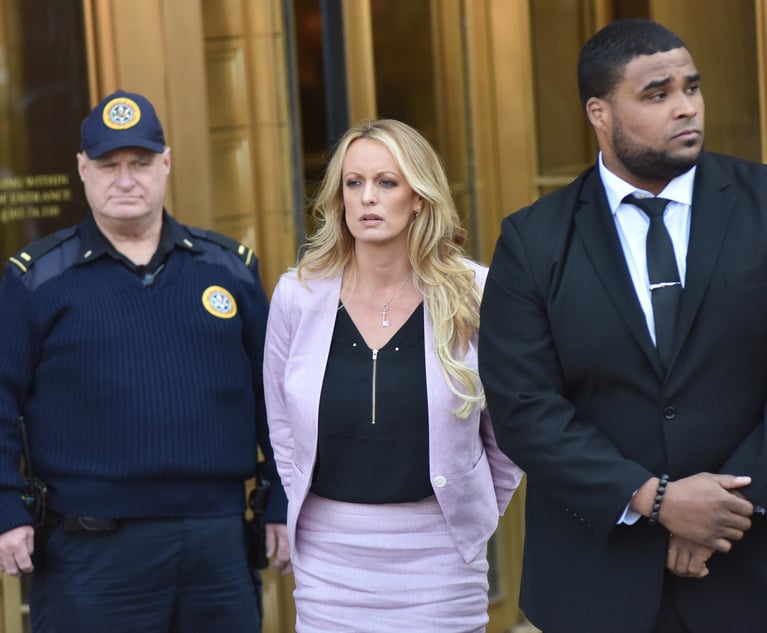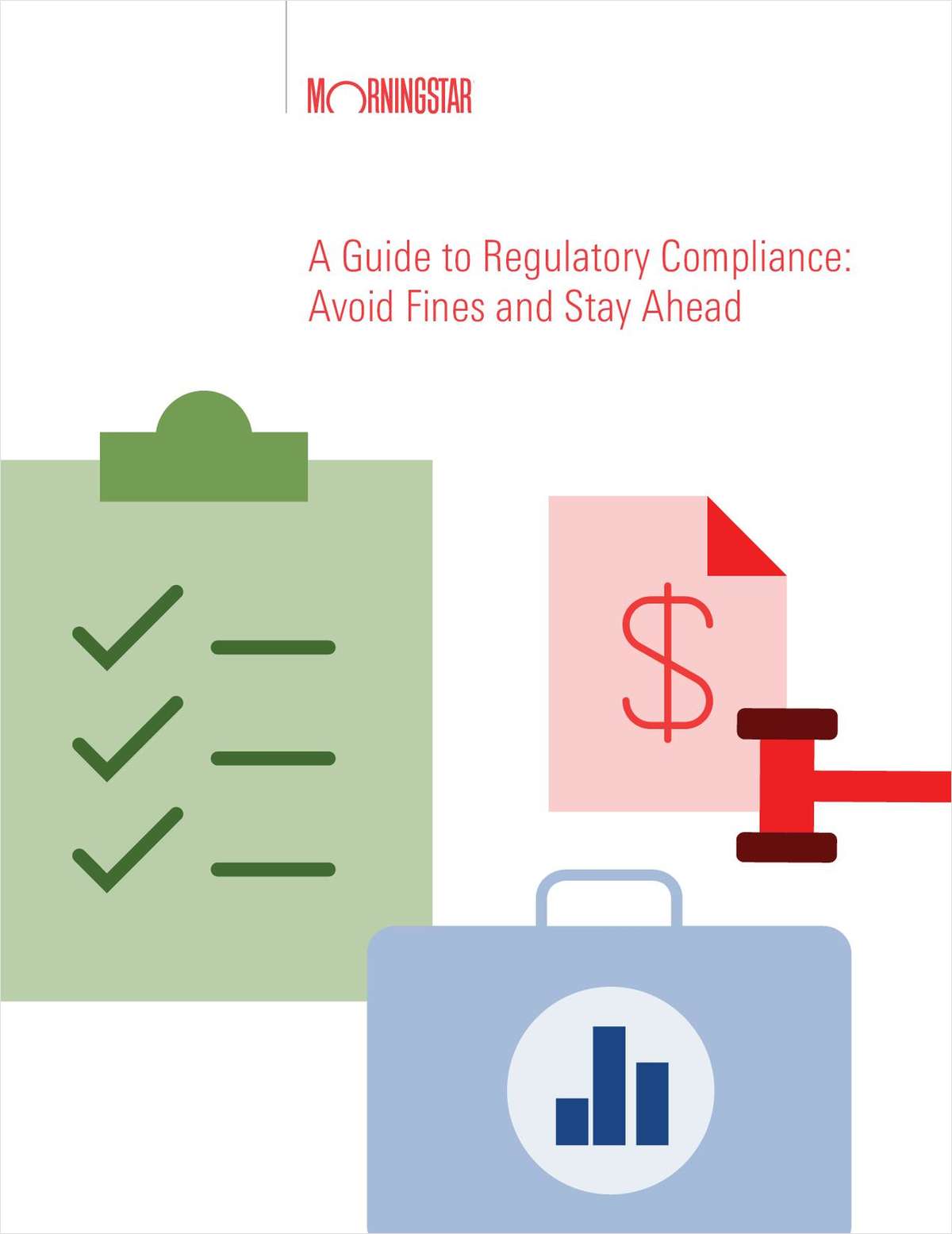Politicians Foolishly Suggest Abandoning Rule of Law
If we mean what we say about our love for our country and its freedoms, then we must do our best to insist on these American rights, especially for those who hurt us.
November 21, 2017 at 10:55 AM
7 minute read

One day after Sayfullo Saipov, an Uzbeki immigrant, killed eight people in Lower Manhattan by running them over in a rented vehicle, President Donald Trump tweeted—the modern-day press release (in all capitals, no less)—that Saipov should get the death penalty. A day later he repeated his call that Saipov should be executed.
In 2016, during the election cycle, candidate Trump referred to Army deserter Bowe Bergdahl as a “dirty rotten traitor,” calling him “the worst,” saying that he was a “piece of garbage,” and a “son of a bitch.” He incorrectly called Bergdahl “a very bad person who killed six people.” He then advocated that Bergdahl “should be shot” and reminisced that “in the good old days, he would have been executed.”
A military judge denied a request by Bergdahl's lawyers to dismiss the charges against him but indicated that the president's comments would be taken into consideration as mitigation when sentencing Bergdahl. While the legal impact the president's tweets will have on the ability of Saipov to get a fair and impartial jury seated in his case remain to be seen, it should not be debatable that the chief executive of the country must refrain from interjecting his or her personal views on the outcome of a criminal case.
This proclivity for putting a thumb on the scales of justice isn't a new feature of politics introduced by our current president. Our former governor, Jodi Rell, vetoed a death penalty abolition bill in Connecticut, citing the lone survivor of a horrible triple-murder and home invasion. Former state Sen. Edith Prague famously suggested that we forgo a trial for the second accused (she used the term “animal”) in that triple murder and instead “hang him by his penis from a tree out in the middle of Main Street.”
There is nothing more insidious than an elected politician publicly advocating for a full-throated abandonment of the core principles of our justice system. Our justice system is built on the notion that every single person, no matter how vile or depraved, must be presumed innocent. Our nation prides itself on the idea that every single person deserves a fair and public trial. These are two of the defining features that we as Americans love to boast about in our justice system.
Yet our leaders are all far too quick to abandon this love of American Justice for the adoration of incensed masses who are too blinded by patriotic fervor to notice the erosion of their own individual rights. Justice Felix Frankfurter wrote, dissenting in United States v. Rabinowitz, “that the safeguards of liberty have frequently been forged in controversies involving not very nice people.” Justice Thurgood Marshall, dissenting in United States v. Salerno, reminded us that upholding the presumption of innocence is difficult and sometimes we must pay substantial societal costs to do so. He cautioned that “the shortcuts we take with those whom we believe to be guilty injure only those wrongfully accused and, ultimately, ourselves.”
Our president, our politicians and, indeed, all of us would be wise to heed his advice. We must not give in to our baser instincts and cheer on the erosion of the presumption of innocence and the right to a fair, impartial trial simply because we do not like the accused or the act committed. If we mean what we say about our love for our country and its freedoms, then we must do our best to insist on these American rights, especially for those who hurt us.

One day after Sayfullo Saipov, an Uzbeki immigrant, killed eight people in Lower Manhattan by running them over in a rented vehicle, President Donald Trump tweeted—the modern-day press release (in all capitals, no less)—that Saipov should get the death penalty. A day later he repeated his call that Saipov should be executed.
In 2016, during the election cycle, candidate Trump referred to Army deserter Bowe Bergdahl as a “dirty rotten traitor,” calling him “the worst,” saying that he was a “piece of garbage,” and a “son of a bitch.” He incorrectly called Bergdahl “a very bad person who killed six people.” He then advocated that Bergdahl “should be shot” and reminisced that “in the good old days, he would have been executed.”
A military judge denied a request by Bergdahl's lawyers to dismiss the charges against him but indicated that the president's comments would be taken into consideration as mitigation when sentencing Bergdahl. While the legal impact the president's tweets will have on the ability of Saipov to get a fair and impartial jury seated in his case remain to be seen, it should not be debatable that the chief executive of the country must refrain from interjecting his or her personal views on the outcome of a criminal case.
This proclivity for putting a thumb on the scales of justice isn't a new feature of politics introduced by our current president. Our former governor, Jodi Rell, vetoed a death penalty abolition bill in Connecticut, citing the lone survivor of a horrible triple-murder and home invasion. Former state Sen. Edith Prague famously suggested that we forgo a trial for the second accused (she used the term “animal”) in that triple murder and instead “hang him by his penis from a tree out in the middle of Main Street.”
There is nothing more insidious than an elected politician publicly advocating for a full-throated abandonment of the core principles of our justice system. Our justice system is built on the notion that every single person, no matter how vile or depraved, must be presumed innocent. Our nation prides itself on the idea that every single person deserves a fair and public trial. These are two of the defining features that we as Americans love to boast about in our justice system.
Yet our leaders are all far too quick to abandon this love of American Justice for the adoration of incensed masses who are too blinded by patriotic fervor to notice the erosion of their own individual rights. Justice Felix Frankfurter wrote, dissenting in United States v. Rabinowitz, “that the safeguards of liberty have frequently been forged in controversies involving not very nice people.” Justice Thurgood Marshall, dissenting in United States v. Salerno, reminded us that upholding the presumption of innocence is difficult and sometimes we must pay substantial societal costs to do so. He cautioned that “the shortcuts we take with those whom we believe to be guilty injure only those wrongfully accused and, ultimately, ourselves.”
Our president, our politicians and, indeed, all of us would be wise to heed his advice. We must not give in to our baser instincts and cheer on the erosion of the presumption of innocence and the right to a fair, impartial trial simply because we do not like the accused or the act committed. If we mean what we say about our love for our country and its freedoms, then we must do our best to insist on these American rights, especially for those who hurt us.
This content has been archived. It is available through our partners, LexisNexis® and Bloomberg Law.
To view this content, please continue to their sites.
Not a Lexis Subscriber?
Subscribe Now
Not a Bloomberg Law Subscriber?
Subscribe Now
NOT FOR REPRINT
© 2025 ALM Global, LLC, All Rights Reserved. Request academic re-use from www.copyright.com. All other uses, submit a request to [email protected]. For more information visit Asset & Logo Licensing.
You Might Like
View All
The Stormy Daniels 'Hush Money' Trial: Donald Trump Should Be Very Worried
7 minute read
Shining a Light on Opposing Hate: The Palestinian Protesters Who Defended New Haven's Menorah
6 minute readTrending Stories
- 1Courts, Lawyers Press On With Business as SoCal Wildfires Rage
- 2Florida, a Political Epicenter, Is the Site of Brownstein Hyatt's 13th Office
- 3Law Firms Close Southern California Offices Amid Devastating Wildfires
- 4Lawsuit alleges racial and gender discrimination led to an Air Force contractor's death at California airfield
- 5Holland & Knight Picks Up 8 Private Wealth Lawyers in Los Angeles
Who Got The Work
Michael G. Bongiorno, Andrew Scott Dulberg and Elizabeth E. Driscoll from Wilmer Cutler Pickering Hale and Dorr have stepped in to represent Symbotic Inc., an A.I.-enabled technology platform that focuses on increasing supply chain efficiency, and other defendants in a pending shareholder derivative lawsuit. The case, filed Oct. 2 in Massachusetts District Court by the Brown Law Firm on behalf of Stephen Austen, accuses certain officers and directors of misleading investors in regard to Symbotic's potential for margin growth by failing to disclose that the company was not equipped to timely deploy its systems or manage expenses through project delays. The case, assigned to U.S. District Judge Nathaniel M. Gorton, is 1:24-cv-12522, Austen v. Cohen et al.
Who Got The Work
Edmund Polubinski and Marie Killmond of Davis Polk & Wardwell have entered appearances for data platform software development company MongoDB and other defendants in a pending shareholder derivative lawsuit. The action, filed Oct. 7 in New York Southern District Court by the Brown Law Firm, accuses the company's directors and/or officers of falsely expressing confidence in the company’s restructuring of its sales incentive plan and downplaying the severity of decreases in its upfront commitments. The case is 1:24-cv-07594, Roy v. Ittycheria et al.
Who Got The Work
Amy O. Bruchs and Kurt F. Ellison of Michael Best & Friedrich have entered appearances for Epic Systems Corp. in a pending employment discrimination lawsuit. The suit was filed Sept. 7 in Wisconsin Western District Court by Levine Eisberner LLC and Siri & Glimstad on behalf of a project manager who claims that he was wrongfully terminated after applying for a religious exemption to the defendant's COVID-19 vaccine mandate. The case, assigned to U.S. Magistrate Judge Anita Marie Boor, is 3:24-cv-00630, Secker, Nathan v. Epic Systems Corporation.
Who Got The Work
David X. Sullivan, Thomas J. Finn and Gregory A. Hall from McCarter & English have entered appearances for Sunrun Installation Services in a pending civil rights lawsuit. The complaint was filed Sept. 4 in Connecticut District Court by attorney Robert M. Berke on behalf of former employee George Edward Steins, who was arrested and charged with employing an unregistered home improvement salesperson. The complaint alleges that had Sunrun informed the Connecticut Department of Consumer Protection that the plaintiff's employment had ended in 2017 and that he no longer held Sunrun's home improvement contractor license, he would not have been hit with charges, which were dismissed in May 2024. The case, assigned to U.S. District Judge Jeffrey A. Meyer, is 3:24-cv-01423, Steins v. Sunrun, Inc. et al.
Who Got The Work
Greenberg Traurig shareholder Joshua L. Raskin has entered an appearance for boohoo.com UK Ltd. in a pending patent infringement lawsuit. The suit, filed Sept. 3 in Texas Eastern District Court by Rozier Hardt McDonough on behalf of Alto Dynamics, asserts five patents related to an online shopping platform. The case, assigned to U.S. District Judge Rodney Gilstrap, is 2:24-cv-00719, Alto Dynamics, LLC v. boohoo.com UK Limited.
Featured Firms
Law Offices of Gary Martin Hays & Associates, P.C.
(470) 294-1674
Law Offices of Mark E. Salomone
(857) 444-6468
Smith & Hassler
(713) 739-1250












